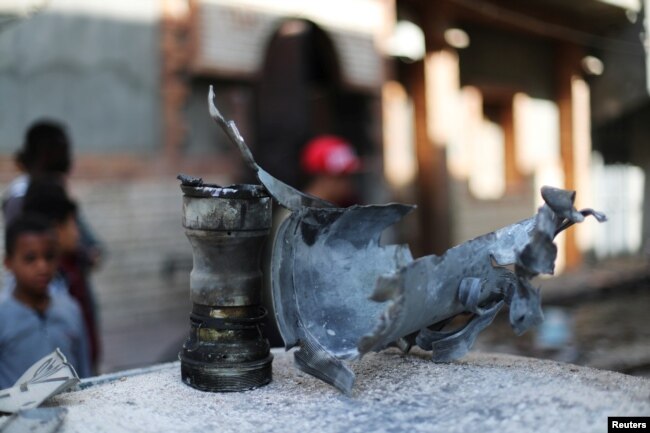The United Nations said Wednesday that the Libyan capital saw its most intense fighting overnight since the forces of Gen. Khalifa Haftar began their battle to take Tripoli earlier this month, VOA news reports.
“Tripoli witnessed the heaviest fighting since the outbreak of clashes, with indiscriminate rocket fire on a high-density neighborhood in the Libyan capital,” spokesman Stephane Dujarric told reporters in New York. He said that at least five civilians were reportedly killed and several others injured.
The U.N.’s top diplomat in Libya, Ghassan Salamé, condemned the shelling on Twitter: “Horrible night of random shelling of residential areas. For the sake of 3 million civilians living in Greater Tripoli, these attacks should stop. NOW!”
In a statement to the media on Tuesday, Salamé renewed his call for international unity to spare Libya from the devastating consequences of a civil war.
To that end, the U.N. Security Council has been considering a draft resolution this week calling for an immediate de-escalation and cease-fire.
Russian objection
Diplomats said Russia had objected to the naming of Haftar’s Libyan National Army (LNA) in the text as originating the new violence. But after a revised draft was circulated Wednesday afternoon, it did not appear to satisfy Moscow, which raised objections, as did council member Equatorial Guinea on behalf of itself and the other two African council members — South Africa and Ivory Coast. Negotiations continue in search of a consensus as the fighting goes on.
The International Organization for Migration said Wednesday that the offensive has displaced 25,000 people in the capital, with 4,500 displaced in the past 24 hours alone.
Humanitarians are also having difficulty evacuating civilians trapped by the fighting. A request for a temporary truce Tuesday to allow civilians to leave volatile neighborhoods in Tripoli was not granted.
“Civilians trapped in conflict areas are reportedly running low on basic food items, as well as fuel, and experiencing prolonged electricity and water cuts,” Dujarric told reporters.
Libya has been in political and economic chaos since longtime dictator Moammar Gadhafi was overthrown and killed in 2011.
The latest cycle of fighting began after forces loyal to Haftar advanced from the east on Tripoli, which is controlled by the U.N.-backed Presidential Council and Prime Minister Fayez al-Serraj in a bid to capture the capital.
The fighting scuttled a national conference the U.N. had planned this week as part of an effort to secure a political settlement.

